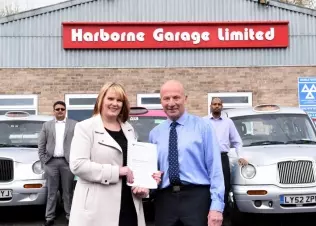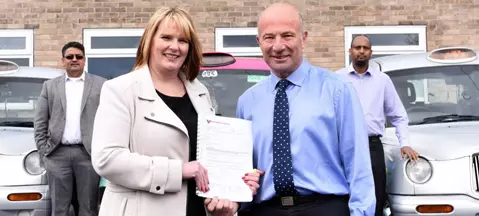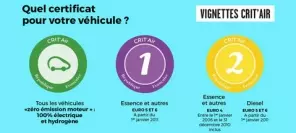- Main page
- Search
- Up to date
- Products
- Technology
- Vehicles
- Video
- Conversion Payback Simulator
Port Injection - Conversion Payback Simulator
Direct Injection - Conversion Payback Simulator
Diesel - Newsletter
Brum ditches diesel in favour of LPG
 loading results...
loading results...The initiative is a part of a broader project, called NOX Reduction Champions. Since vehicles fueled with diesel are the main source of nitrogen oxides in cities, it's only logical to replace them with ones using cleaner LPG autogas instead. The new taxis (63 of them for a start) will feature petrol engines converted to burn the cheaper, greener fuel. They will all be Euro 6 compliant to meet the stringent Clean Air Zone requirements and thus exempt from all congestion charges.
The fact our city has an ageing fleet of cabs means we need to look at how we can work with drivers to re-profile the vehicles serving customers in the city as their impact on air quality is significant. Through the funding the council has successfully unlocked from the Government, we’ve been able to play a part in forming links with technology providers and engineers to come up with part of the solution to one of the city’s major public health issues.
Anne Shaw, assistant director for transportation at Birmingham city council
 © Air Quality NewsThe first five taxis are now ready for engine swap and conversion. More will follow
© Air Quality NewsThe first five taxis are now ready for engine swap and conversion. More will followInterestingly, the vehicles (iconic British TX1 and TX2 "black cabs”) are not replaced altogether with petrol-powered ones which then get converted. Instead, existing taxis are having their engines swapped to minimise the cost of the entire operation. Which isn't low in any case at 8000 pounds, but drivers expect to recoup the investment in approximately two years within conversion. The procedure has already started – the first five cars have been booked into a specialist workshop to undergo "powerplant transplants”.
The workshop, Harborne Garage in Birmingham, is looking forward to converting the first batch of taxis and more that will follow in the future. According to Steve Law from the garage, this is a moment in history that is bound to change the universally loved black cab forever. And for better, might we add.
Autogas Ltd is delighted to be working alongside Birmingham City Council as part of their ‘Birmingham NOX Reduction Champions’ project in retrofitting their taxi fleet to run on LPG. With an increase in levels of pollutants such as nitrogen dioxide that are harmful to human health, it remains imperative that these air quality issues are addressed in Birmingham and across the UK.
As such, Birmingham City Council should be highly commended for adopting measures such as retrofitting their taxi fleet to run on cleaner LPG fuel, demonstrating that both locally and nationally, they are already at the forefront of tackling air pollution from the most polluting vehicles and meeting the demands set out as part of the Government’s Clean Air Zones programme, well ahead of the deadline in 2020.
Linda Gomersall, general manager of Autogas Ltd







